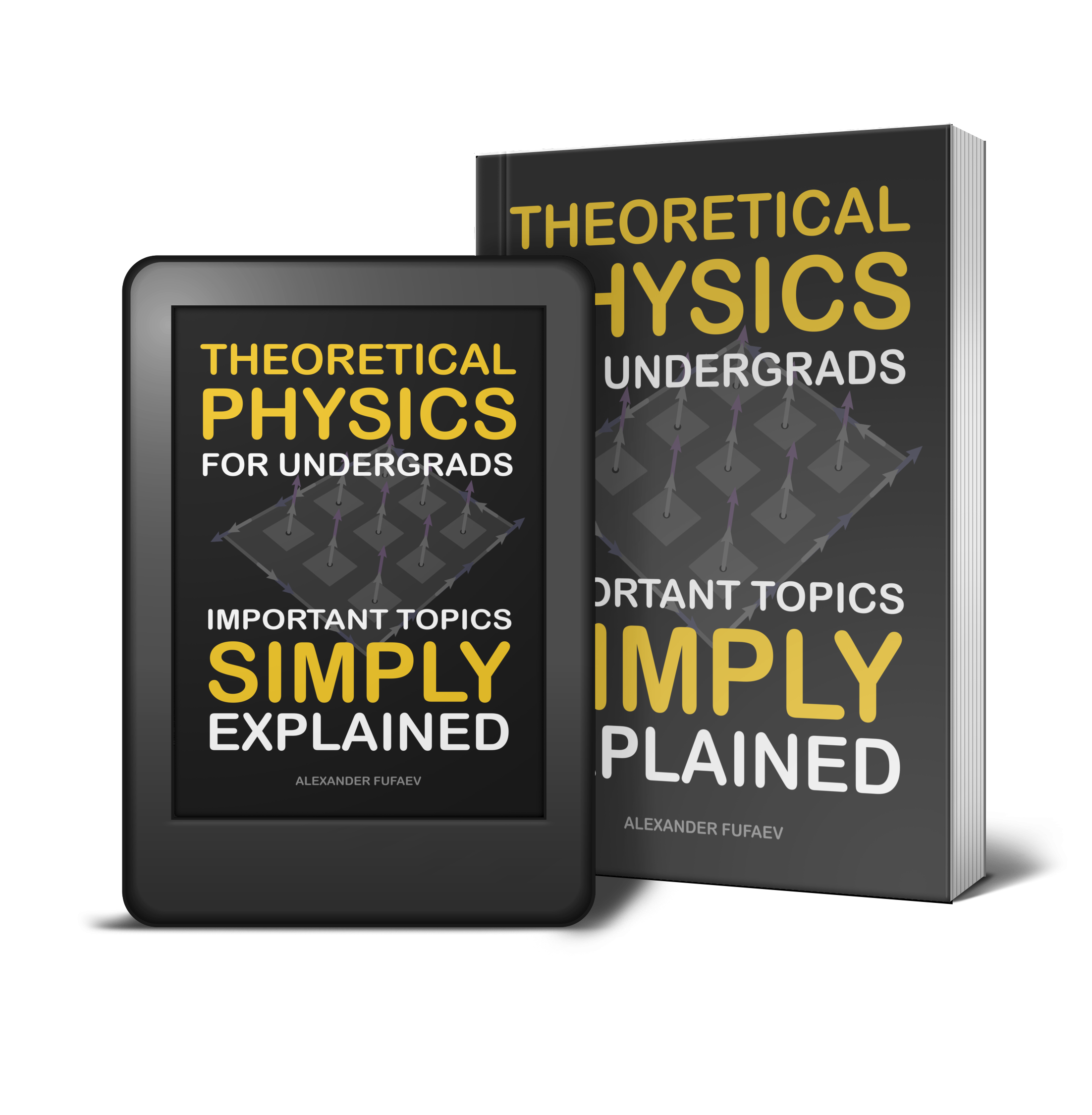Theoretical Physics For Undergrads: Important Topics Simply Explained
Imagine...
Are you studying physics but feel that you don't really understand theoretical physics in depth? This is usually because the topics are covered far too quickly, so that you don't have time to develop a deep, intuitive understanding of the physical theories. Often the professor himself does not have a visual-intuitive understanding of what he is explaining.
In the book »Theoretical Physics for Undergrads«, Alexander Fufaev explains the most important topics of undergrad physics, such as the Euler-Lagrange Equation, Schrödinger Equation and Maxwell's Equations, as simply as possible.
- You'll be able to explain the physics topics yourself. ✅
- You'll have an intuitive picture in your mind, making it easier to remember the formulas and concepts. ✅
- You'll find it easier to work on assignments in analytical mechanics, electrodynamics, and quantum mechanics. ✅
You'll also learn the mathematical tools for the physics topics. You just need to know a bit about derivatives, integrals, matrices, and vectors to fully understand the topics.
Get the textbook now and rock your theoretical physics studies!

+ Instant access to eBook
Frequently asked questions
What if I don't like the eBook?
No problem, just send an email to alexander@fufaev.org with the specific, detailed reason for your dissatisfaction, and you'll get your money back.
When will the eBook be available?
Immediately after payment via PayPal, you'll receive a link to download the book in PDF format.
Will my payment details be stored on this website?
No. During payment, you'll be redirected to PayPal to complete the transaction. Neither your email nor any other data will be stored on this website.

Reviews
Create review on AmazonI am studying physics in my second semester and discovered this book on Alexander's YouTube channel. The book is quite compact, but the explanations are very easy to understand. I've understood everything in the book so far and learned a lot from it. I particularly like the chapters on the curl and divergence theorem. by Robin H.